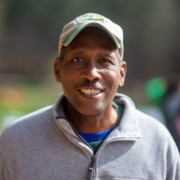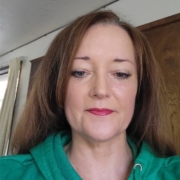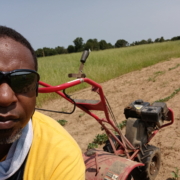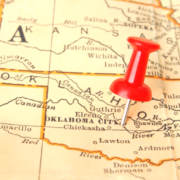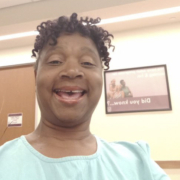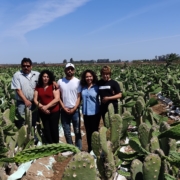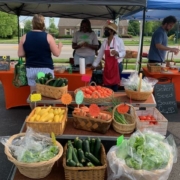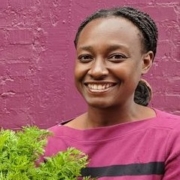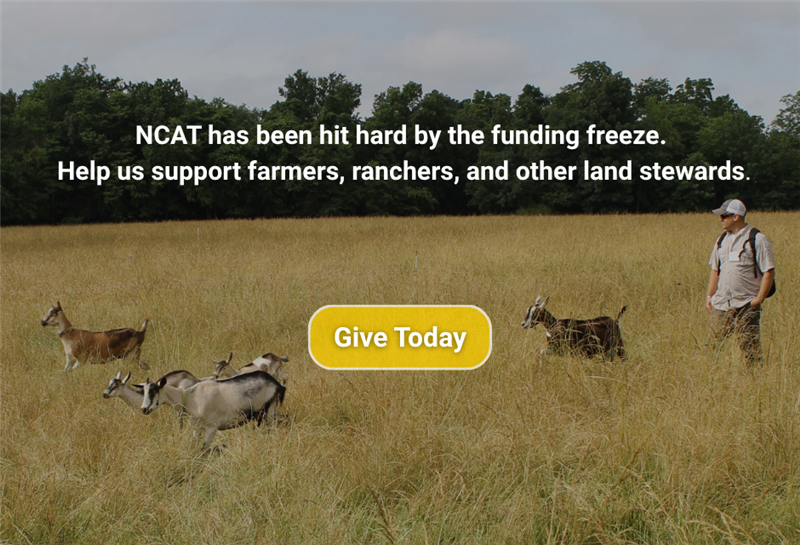Brennan and Gwendolyn Washington
Brennan and Gwendolyn Washington transformed their gardening hobby into a 20-year agricultural endeavor called Phoenix Gardens in Lawrenceville, Georgia. They say their farming journey has not been easy, but every time they are faced with adversity they persevere through networking and learning.
Gardening was a form of destressing for the Washingtons, and soon they started to grow more than they could eat, causing costs to pile up. While they assessed the situation and decided what to do, by a stroke of luck and faith, Gwendolyn came across the Lawrenceville, Georgia, farmers market. They soon began selling their produce and expanding their business. Currently, they sell at farmers markets and have embraced online selling, which began in response to the COVID-19 pandemic.
Phoenix Gardens is Certified Naturally Grown –– sustainably producing leafy greens and tomatoes without synthetic herbicides, pesticides, fertilizers, or genetically modified organisms. Their two-and-a-half-acre, micro-intensive farm has two high tunnels, a greenhouse, and open field production. They constantly work with nature by adapting various aspects of permaculture and working with their rocky slope terrain. For example, Brennan hired a person to install swales to better utilize water on their terrain, and he works with the micro-climates created by their trees to grow leafy greens that need shade. Currently, the work is done by Brennan, Gwendolyn, and their son.
A year after they bought their home, the county notified them of a parkway expansion that required it to pass through their property. That was a year of uncertainty as they could not find a new home that matched their needs. Then the county decided to change the parkway location, and they were able to keep their home. In 2015, the Washingtons experienced a devastating event where their house suddenly burned down. They lost everything, the entire home and their car. The county gave them a hard time as they were rebuilding, since the last home was missing some permits. Regardless, Brennan and Gwendolyn prevailed and with the help of their farming community, they were able to rebuild. Their operation was named Phoenix Farms, since they rose from the ashes, only to be stronger.
Labor has become an everyday challenge for the Washingtons as they grow older, Brennan said. He mentioned not being as successful as he would like to be, as success to him means being able to work on their farm full time and have income that can sustain healthcare, childcare, and retirement. Brennan wishes he had developed his farm as a business sooner, with more strategic financial planning and considering things such as health insurance, retirement plans, and looking into future planning to pass down their land to their children. He encourages farmers to take the time to understand their insurance needs and for beginner farmers to have a financial and transitional plan.
They specifically took time to cultivate a diverse network of organizations and people. First, they contacted Extension staff at Southern University in Baton Rouge, Louisiana. Next, they joined the nonprofit organization Georgia Organics, which sent Brennan and several other farmers to the National Small Farmers Conference in Illinois. Through this conference, he was able to network and learn about funding resources. Additionally, he utilized NCAT resources and participated in other groups of like-minded individuals. Finally, through NRCS, Brennan and Gwendolyn received cost-share reimbursements for their high tunnels, soil testing, and nutrient management practices.
Although these organizations were beneficial in helping the Washingtons get their farm established, there is always room for improvement in serving BIPOC farmers. There are many barriers to farming, and it is only getting harder with climate and supply uncertainty. As such, it is critically important to work together. Brennan believes that organizations can meet people where they are and be that presence on the ground willing to understand what people are going through and work with them to achieve goals. Additionally, he mentioned how important it is to address that “no man is an island” and the importance of openly talking about finances, insurance, and networks and realizing that you could do more together.

